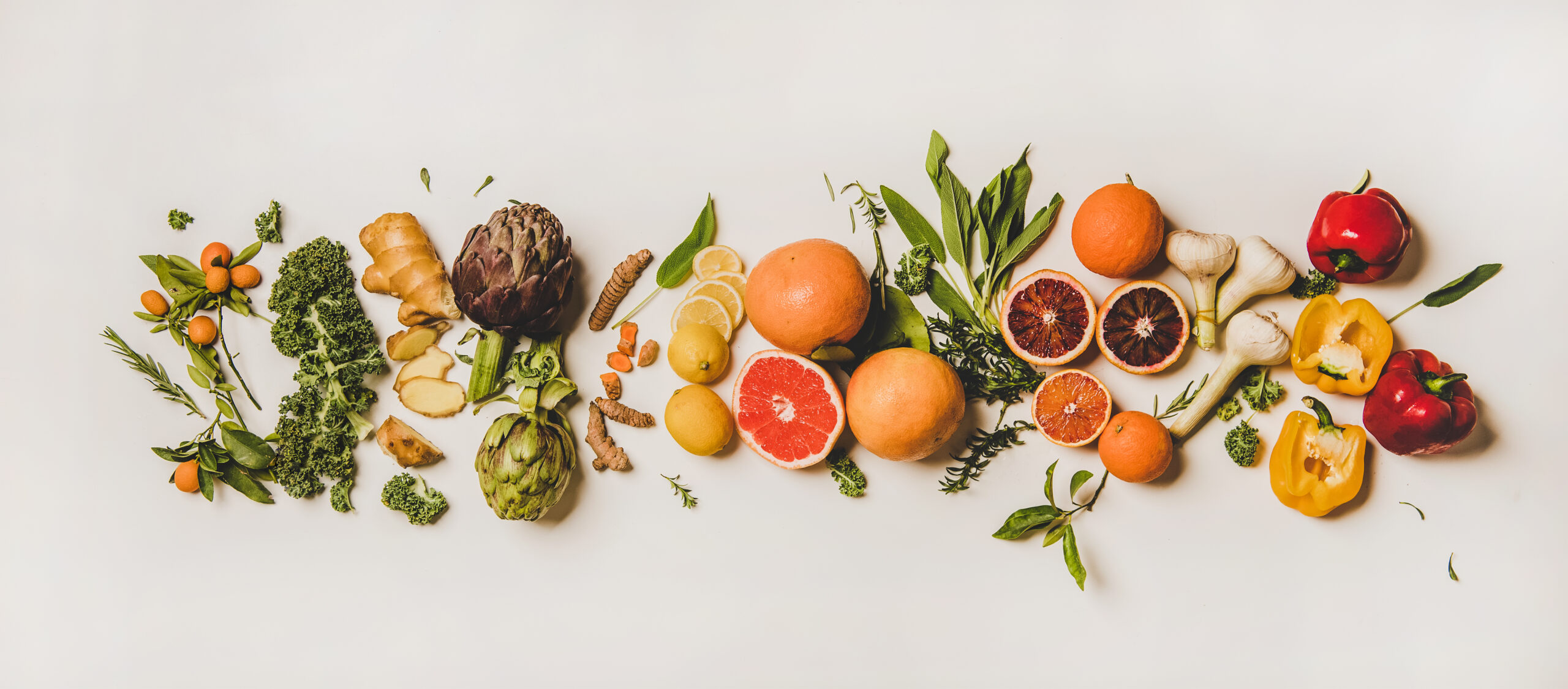by Mac Chaney
In this day and age, maintaining your health has become more important than ever. With the introduction of new viruses, seasonal illnesses and chronic diseases, it’s a given that people will start directing their attention to how they can naturally support their bodies. One of the most effective ways to level up your body’s defenses is through the food you consume. A well-nourished immune system is better equipped to fend off illness and recover more quickly when you do get sick. The best part? Boosting your immunity doesn’t require fancy supplements or expensive health trends—it starts with the right foods on your plate.
The Immune System and Nutrition Connection
Your immune system is a complex network of cells, organs and proteins that work together to defend the body against harmful invaders like viruses and bacteria. Nutrition plays a crucial role in keeping this system functioning properly. Depending on the nutrient, it can help your body create and activate immune cells, reduce inflammation or strengthen protective barriers like the skin and mucous membranes that protect us from infection.
Key Nutrients That Support Immunity Include:
- Vitamin C: Helps stimulate the production of white blood cells.
- Vitamin D: Enhances the pathogen-fighting effects of white blood cells.
- Zinc: Essential for immune cell function and communication.
- Probiotics: Promote a healthy gut, where much of the immune system resides.
- Antioxidants: Protect immune cells from damage caused by free radicals.
A diet that’s abundant in nutrients can improve your ability to fight off infections and speed up your recovery.
Top Immunity-Boosting Foods
Here are some of the best foods you can eat to support a strong immune system:
- Citrus Fruits: Oranges, grapefruits, lemons and limes are rich in vitamin C, one of the most well-known immunity-boosting nutrients. Vitamin C increases the production of white blood cells, which are crucial for defending your body against infections. Since your body doesn’t store vitamin C, regular consumption through food is key.
- Red Bell Peppers: Surprisingly, red bell peppers contain nearly three times as much vitamin C as an orange. They’re also a good source of beta carotene, which the body converts into vitamin A—a nutrient essential for maintaining healthy skin and tissues, your body’s first line of defense against pathogens.
- Garlic: Garlic has been used in medicine for centuries. It contains allicin, a sulfur-containing compound known for its immune-boosting properties. Studies suggest that garlic can enhance the functionality of immune cells and reduce the severity of cold and flu symptoms.
- Ginger: Ginger offers powerful anti-inflammatory and antioxidant effects. It can aid a sore throat, reduce inflammation and support your immune system’s response. It may also play a role in lowering oxidative stress and cholesterol levels.
- Yogurt and Fermented Foods: Probiotics found in yogurt, kefir, kimchi and sauerkraut help maintain the balance of beneficial bacteria in your gut. Since around 70% of your immune system is housed in your digestive tract, a healthy gut microbiome is essential for proper immune function.
- Spinach and Leafy Greens: Spinach is packed with vitamin C, beta carotene and numerous antioxidants that help your immune system fight infections. Eating it lightly cooked helps preserve its nutrients while enhancing the absorption of certain compounds.
- Almonds and Nuts: Vitamin E is often overlooked in immune health, but it’s a powerful antioxidant that helps the body fight infection. Almonds are an excellent source, and their healthy fats enhance the absorption of fat-soluble vitamins like vitamin E.
- Turmeric: This vibrant yellow spice contains curcumin, a compound with strong anti-inflammatory properties. Adding turmeric to your meals, especially with a pinch of black pepper to enhance absorption, can support immune function over time.
- Green Tea: Rich in flavonoids and a powerful antioxidant called EGCG (epigallocatechin gallate), green tea supports immune function and helps reduce inflammation. It also contains L-theanine, an amino acid that may aid in the production of germ-fighting T-cells.
- Fatty Fish: Salmon, tuna and mackerel are rich in omega-3 fatty acids, which can help reduce chronic inflammation. Some studies suggest omega-3s also enhance immune cell function, making fatty fish a great addition to your weekly diet.
Food and Habits to Limit
Just as some foods can support your immune system, others can suppress it. Diets high in refined sugar, processed foods and alcohol can impair immune responses and increase inflammation. Excessive salt and trans fats also contribute to chronic inflammation, which weakens your immune system over time. Additionally, dehydration can compromise physical barriers like the skin and mucous membranes, making it easier for germs to enter your system.
Lifestyle Tips to Complement an Immune-Boosting Diet
While food is foundational, lifestyle choices also play a major role in immune health. Here are a few simple but powerful habits:
- Get Enough Sleep: Aim for 7–9 hours each night to give your body the time it needs to repair, recharge and fight off illness.
- Stay Physically Active: Regular exercise improves circulation and supports immune regulation.
- Manage Stress: Chronic stress can weaken your immune system. Try techniques like meditation, journaling or taking a walk outside to help reduce stress levels.
- Stay Hydrated: Water helps transport nutrients and flush out toxins.
Consistency is crucial. Building immunity doesn’t happen overnight, but small daily habits can add up to long-term benefits.
Your immune system is your body’s natural defense against illness, and the foods you eat directly influence how strong that defense is. From vitamin-enriched fruits and vegetables to healthy fats and probiotic foods, the right nutrition can give your immune system the tools it needs to protect your health. While there’s no single “magic” food that guarantees you won’t get sick, eating a balanced, nutrient-dense diet can significantly reduce your risk and help you recover more quickly. Start with small changes—add a fruit here, swap a snack there—and give your body the fuel it needs to stay strong and resilient.








Leave A Comment